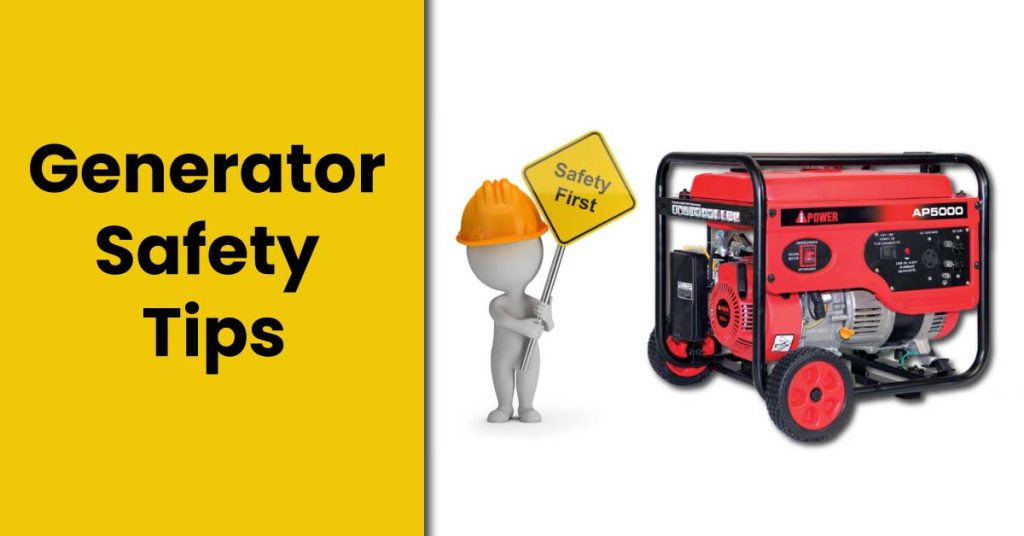Generator Safety Tips For Carbon Monoxide, Electrocution, And Fires
In this safety guide, you will learn Generator Safety Tips for electrocutions, fires, and carbon monoxide. We have also covered where to place the generator and how to store the fuel properly.
At least 22 people were found dead due to carbon monoxide poisoning in Murree, Pakistan on January 8, 2022, when roads were blocked during a snowstorm.
From 2005 to 2017, more than 900 people died due to carbon monoxide using a portable generator according to consumer reports.
A generator is a valuable piece of equipment that comes in handy during prolonged power outages in most of the world, but it is easy to overlook safety measures since we rarely rely on a generator.
If you don’t know how to properly use a generator, it can be dangerous.
So we will help you to understand all the potential hazards that come with using a generator and proper generator safety tips.
Generator Safety Tips

Proper Ventilation For Carbon Monoxide
Generator Safety Tips For Burns, Gasoline, And Other Fuel
Generator Safety Tips For Portable And Whole-House Generators
Proper Maintenance Of The Generator
Check the tank, pipes, and valve regularly for leakages. Regularly change the oil and spark plugs too if you want to ensure a longer lifespan.
I have seen many people being clumsy when it comes to changing the oil and spark plugs. That doesn’t only cause damage to the generator but its power output significantly decreases.
Using old oil can cause internal friction, the engine parts will get extremely hot and it might permanently damage the generator.
Pro tip:
For camping, RV, tailgating, and generator outdoor activities, people buy portable inverter generators because they are cheaper, efficient, reliable, and convenient for outdoor usage.
Like all of you, I also used to pick up my small portable generator to put it in the back of the truck.
Now the problem is, I wasn’t bending properly by going all the way down and lifting the generator using the power of my legs. Instead, I used my back to lift the generator. I know all of you recognize this bad posture that I am talking about.
It caused disc bulging and sciatica. I have seen many people suffering from disc bulging and sciatica just by wrongly picking heavy objects.
So whenever you lift your portable generator, make sure to go all the way down before you lift it.

Alex Black is a seasoned electrical engineer with a remarkable 8-year track record specializing in appliances, generators, and transfer switches. With extensive hands-on experience in the field, Alex possesses a deep understanding of electrical systems and their intricate workings. Throughout their career, Alex has consistently demonstrated expertise in designing, troubleshooting, and maintaining various electrical appliances.
